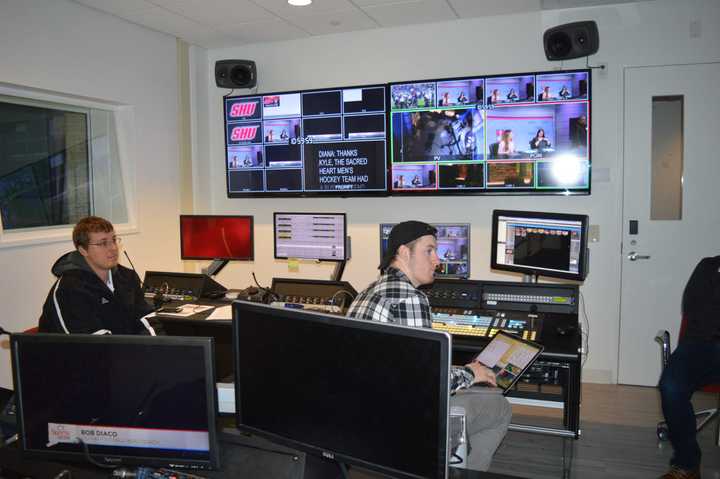Sacred Heart University’s Bill Yousman instructs students to determine who is sending the message.
He teaches undergraduate and graduate level classes in media literacy, a growing concern in a world where information -- some accurate, some not -- spews from fountains everywhere.
“The basic definition of media literacy is the ability to access, analyze, evaluate and create media in a variety of forms,’’ Yousman said. “It’s taking the idea that traditional skills of literacy are not enough. Reading written text is still important, but now we need to extend that to to the entire digital media environment, like advertising, movies and television. We need to take it seriously and we need to know where information is coming from.”
Yousman, a second-year professor at Sacred Heart, is the former managing director of the Media Education Foundation. The term “fake news” has become popular in recent months, which is why Yousman tells students to take a critical look at media.
“We always have to look at all the media we use with a critical eye,’’ he said. “We can’t take it on face value. It’s not enough to look what most people would consider reliable sources. That’s the critical thinking part. Who produced this? What agenda do they have? Whose interests are being supported? Whose voices are not being heard?”
Because of the vast amount of media, Yousman feels education is the most important way for people to analyze information coming at them. “There’s not one magic pill that will solve this,’’ he said. “It’s about education. That type of media literacy can’t start too early.”
Yousman said even young children get invested in media when they use iPads, mobile phones and gaming systems.
“Media literacy has to start in the earliest grades,’’ he said. “There are things you can do. In talking to kindergartners, you can ask them does this toy really look like it did in the ad, and does it work like they promised? Even children can get some critical distance from media. It’s a long term project of critical consciousness that should start at an early age.”
Yousman offered pessimistic and optimistic thoughts on media literacy going forward. His pessimistic view is that democracy will be in trouble if people in power dismiss outlets who try to hold them accountable. “It’s a way to push out criticism or investigation,’’ he said. “It’s a way to deflect accountability.Facts still do matter. We need to hold powerful people accountable.”
His optimistic view is that people are developing a more critical media eye. “It’s waking people up to the idea that we can’t be passive, and we need to think critically about the messages we’re receiving,’’ he said.
Yousman feels media have earned some of the distrust that the public perceives. He pointed to a national news network that broke away from an important political story to report a Justin Bieber update.
“I saved that clip and show it to my classes,’’ Yousman said. “It’s so ridiculous. This hunt for ratings and profit. Media industries need to look at themselves. A certain amount of distrust is healthy. We need more independent media that aren’t beholden to shareholders and advertisers, and a robust system that can be independent.”
Click here to follow Daily Voice Fairfield and receive free news updates.

